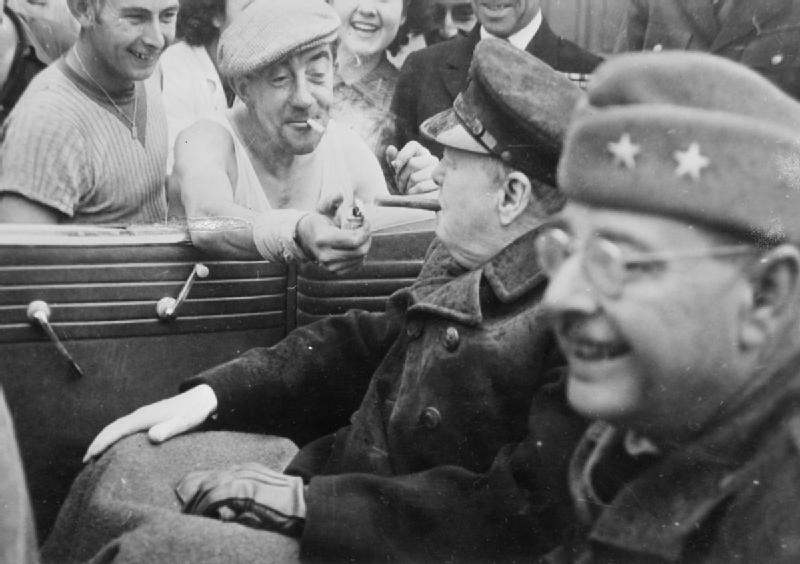
“Churchill: The End of Glory” by John Charmley
Q: I have just been given a copy of Churchill: The End of Glory, A Political Biography by John Charmley (1993) and am obliged to say that it has the most confused index I have ever come across. It may be idle scholarship on my part but when I open a book that is new to me the first thing that I do is look through the index to see if it contains matters that I consider it should and the next thing I check is the bibliography. I looked for Singapore and its British commander, Lieutenant-General Arthur Ernest Percival but could not find any mentions.
Charmley reviewed
The Hillsdale College Churchill Project offers summraries of books about Churchill from 1905 on. For The End of Glory we write….
What publicized this work was a section arguing that Churchill should have backed away from fighting Germany in 1940 in order to preserve Britain’s wealth, power and empire. (Charmley did not say “make peace with Hitler,” as some reviewers stated.) Per the author, Churchill chose instead to make Britain a client state of America, allowing Soviet power to wax and the British Empire to wane. Whatever we may think of that argument, this is a well written, critical biography from a self-described “Thatcherite historian.” The bibliography lists every significant book in English relating to the political Churchill, but is light on foreign works.
Prof. Charmley provided an entertaining interlude with his thesis and the arguments over it 25 (can it be possible?) years ago. You can download these issues by Googling “Finest Hour 78” and so on:
Finest Hour 78: Richard Langworth, “Elvis Lives: John Charmley’s Tabloid Winston,” pp 10-13
Letters column, Finest Hour 79 (including Prof. Charmley’s reply), pp 32-34
Finest Hour 81: Review. Max Schoenfeld, “Glorious Failure,” pp 32-33
Finest Hour 81: Review. Larry Arnn, “Too Easy to be Good,” pp 33-40
Letters column, Finest Hour 83 (Prof. Charmley’s reply to reviews), p 40
Finest Hour 83: Manfred Weidhorn, “Salvaging Charmley,” p 41
.
John Charmley’s book is well crafted, without the venom and hysteria of more recent revisionists. His sequel, Churchill’s Grand Alliance, is worth reading for its painful account of how Britain fared at times in the not-so-special “Special Relationship.” His biography of Duff Cooper is masterful. And John himself is a gentleman. After our exchanges he invited me to lunch at his club. I promised to order the most expensive Pol Roger on the menu.
On Singapore
Charmley does mention Singapore and Percival on page 487 (London edition, “Grand Alliance” chapter) but this is a political biography, not a history of the war. The definitive source for that is Martin Gilbert’s Winston S. Churchill, vol. 7, Road to Victory, available from the Hillsdale College Bookstore.
N.B.:
On the sinking of HMS Prince of Wales and Repulse off Malaya, see Chris Bell and Robin Brodhurst, “Did Churchill Underrate Warship Vulnerability from the Air?” Incidentally, Churchill in December 1924, newly become Chancellor of the Exchequer, questioned the nature of Singapore’s landward defences. These were based on submarines, possibly anticipating a seaborne invasion of the peninsula; Churchill thought aircraft would be more effective, but he didn’t pursue the matter. Through 1939 he was convinced that a Japanese attack on Singapore was unlikely. Of course, a lot changed between 1939 and 1941.






